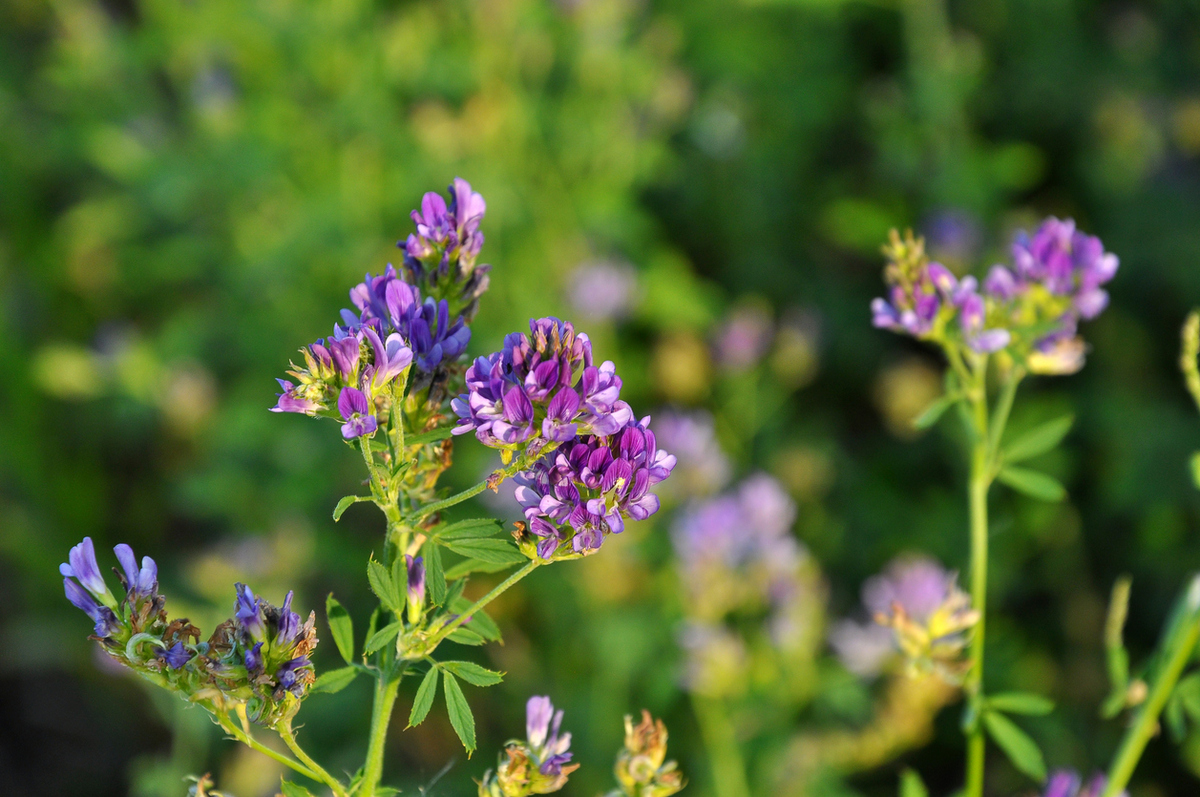
Scientists Use CRISPR to Identify Gene Linked to Waterlogging Resilience in Alfalfa
August 27, 2025| |
A team of researchers from the Lethbridge Research and Development Centre, University of Alberta, and London Research and Development Centre has discovered that the MsWOX13-2 gene in alfalfa acts as a negative regulator of the plant's ability to withstand waterlogging. The findings, published in The Plant Journal, provide valuable insight into how flooding caused by climate change could be managed through future breeding efforts in this key forage crop.
The study focused on the role of WUSCHEL-related homeobox (WOX) transcription factors, which are known to influence plant development and stress responses. The researchers found that the plants with silenced MsWOX13-2 maintained higher chlorophyll levels, greater photosynthetic efficiency, and improved survival under waterlogged conditions compared to control plants. The gene-edited plants also accumulated less hydrogen peroxide and displayed higher superoxide dismutase activity, reducing oxidative damage.
The research team confirmed these results using the CRISPR-Cas9 gene editing system. RNA-Seq analysis further revealed significant changes in genes related to photosynthesis, anaerobic fermentation, phytohormone-related pathways, and transcriptional regulation in the leaves of WOX13-2 RNAi genotypes. The results of the study suggest MsWOX13-2 as a novel candidate for developing more waterlogging-resilient alfalfa varieties.
For more information, read the article from The Plant Journal.
| |
You might also like:
- US FDA Completes Review of Altered Lignin Alfalfa Developed by Cibus and S&W Seed
- ARS Research Team Boost Alfalfa's Salt Tolerance
- Multiplex CRISPR-Cas9 Reduces Lignin Deposition and Improves Forage Quality of Alfalfa
Biotech Updates is a weekly newsletter of ISAAA, a not-for-profit organization. It is distributed for free to over 22,000 subscribers worldwide to inform them about the key developments in biosciences, especially in biotechnology. Your support will help us in our mission to feed the world with knowledge. You can help by donating as little as $10.
-
See more articles:
-
Gene Editing Supplement (August 27, 2025)
-
Research and Tools
- CRISPR Reveals Key to Development of Purple Rice
- Gene Editing Helps Identify Genetic Module Regulating Soybean Seed Traits
- Scientists Use CRISPR to Identify Gene Linked to Waterlogging Resilience in Alfalfa
- Gene Editing and Metabolic Profiling Elucidate Stomatal Development in Maize
-
Read the latest: - Biotech Updates (January 28, 2026)
- Gene Editing Supplement (January 28, 2026)
- Gene Drive Supplement (February 22, 2023)
-
Subscribe to BU: - Share
- Tweet

